Indices Math Worksheets
Converting from Scientific Notation
Grades: 8th Grade
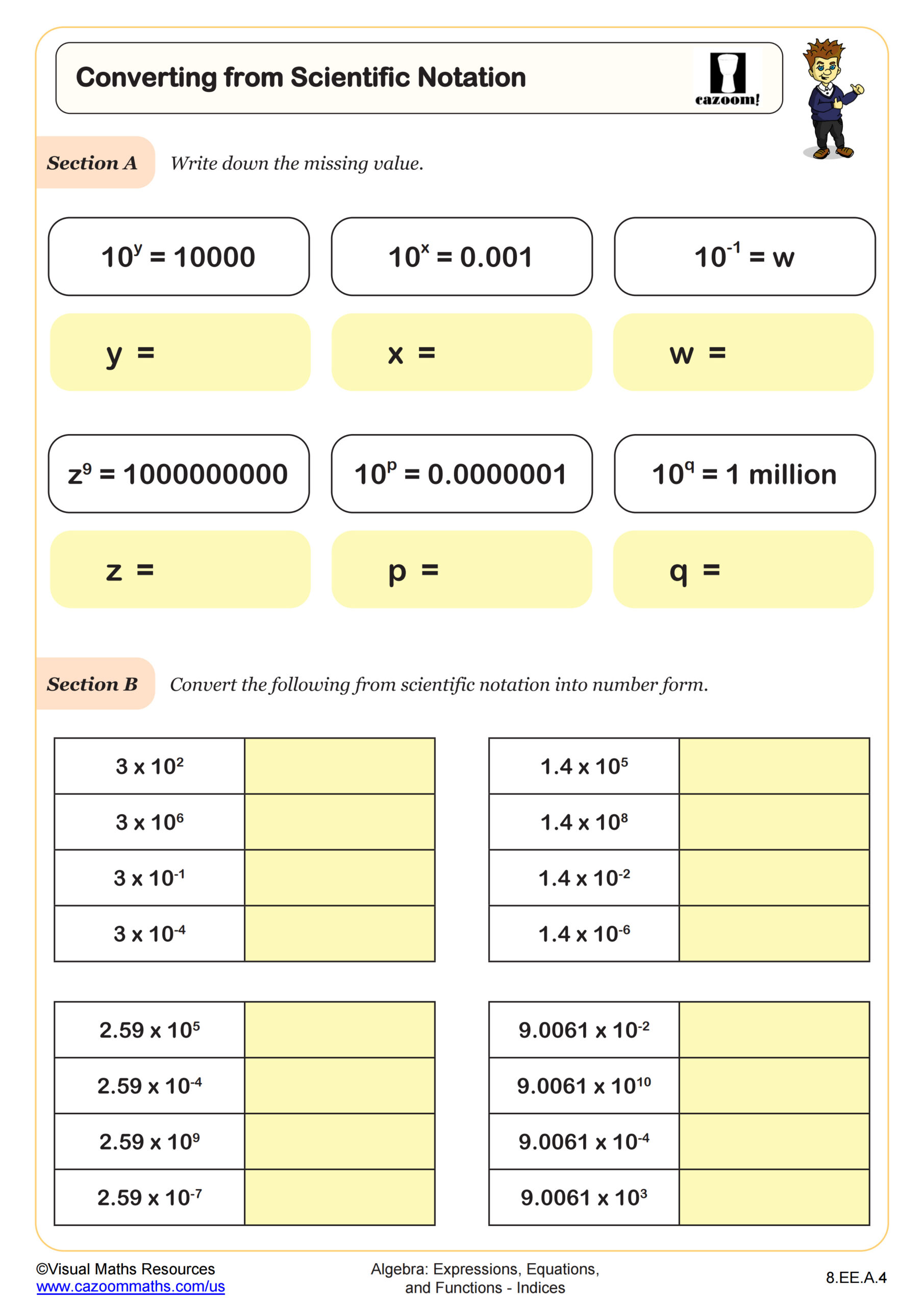
Estimating Values of Square and Cube Roots
Grades: 8th Grade
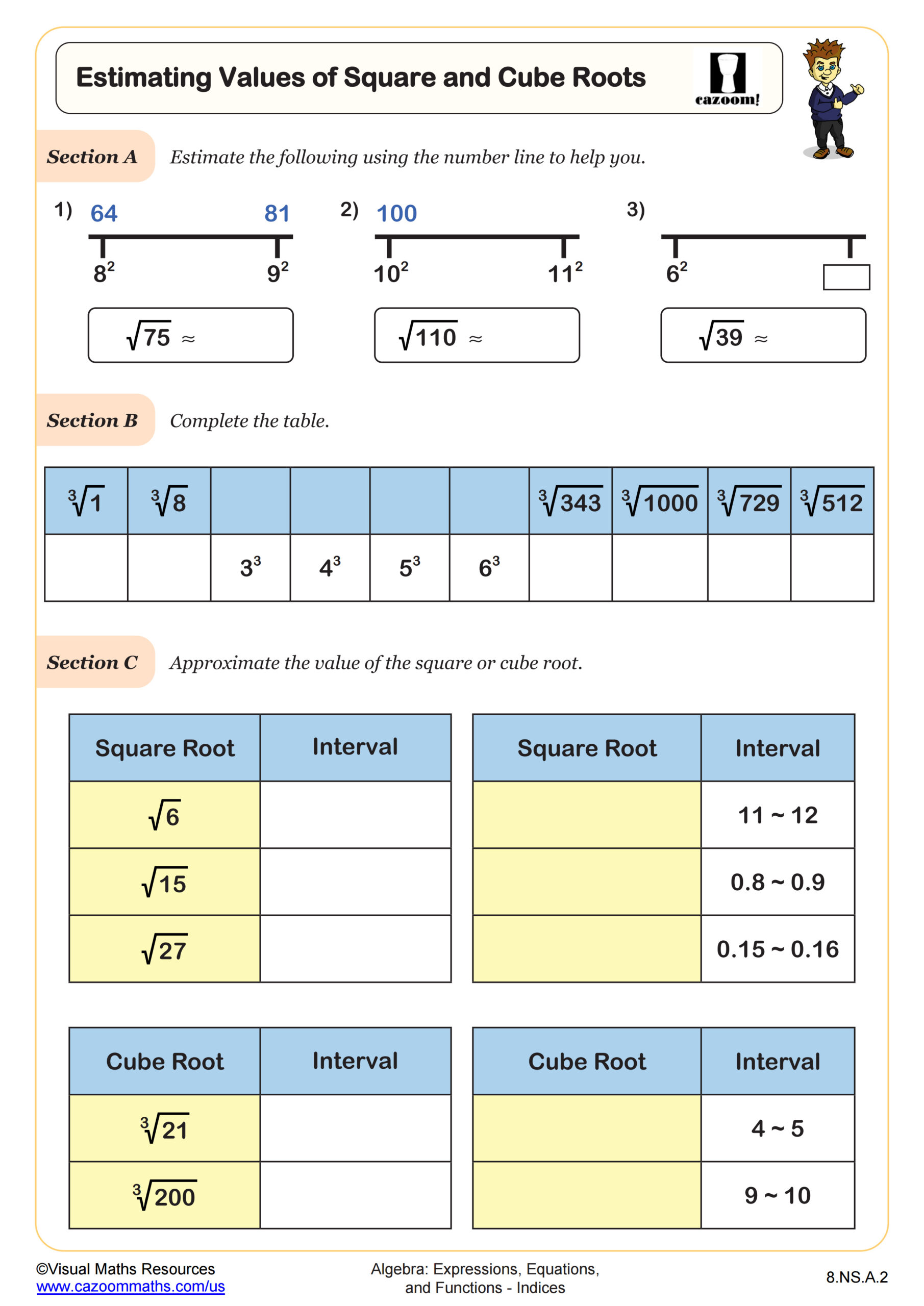
Estimating with Radicals and Decimals
Grades: 8th Grade
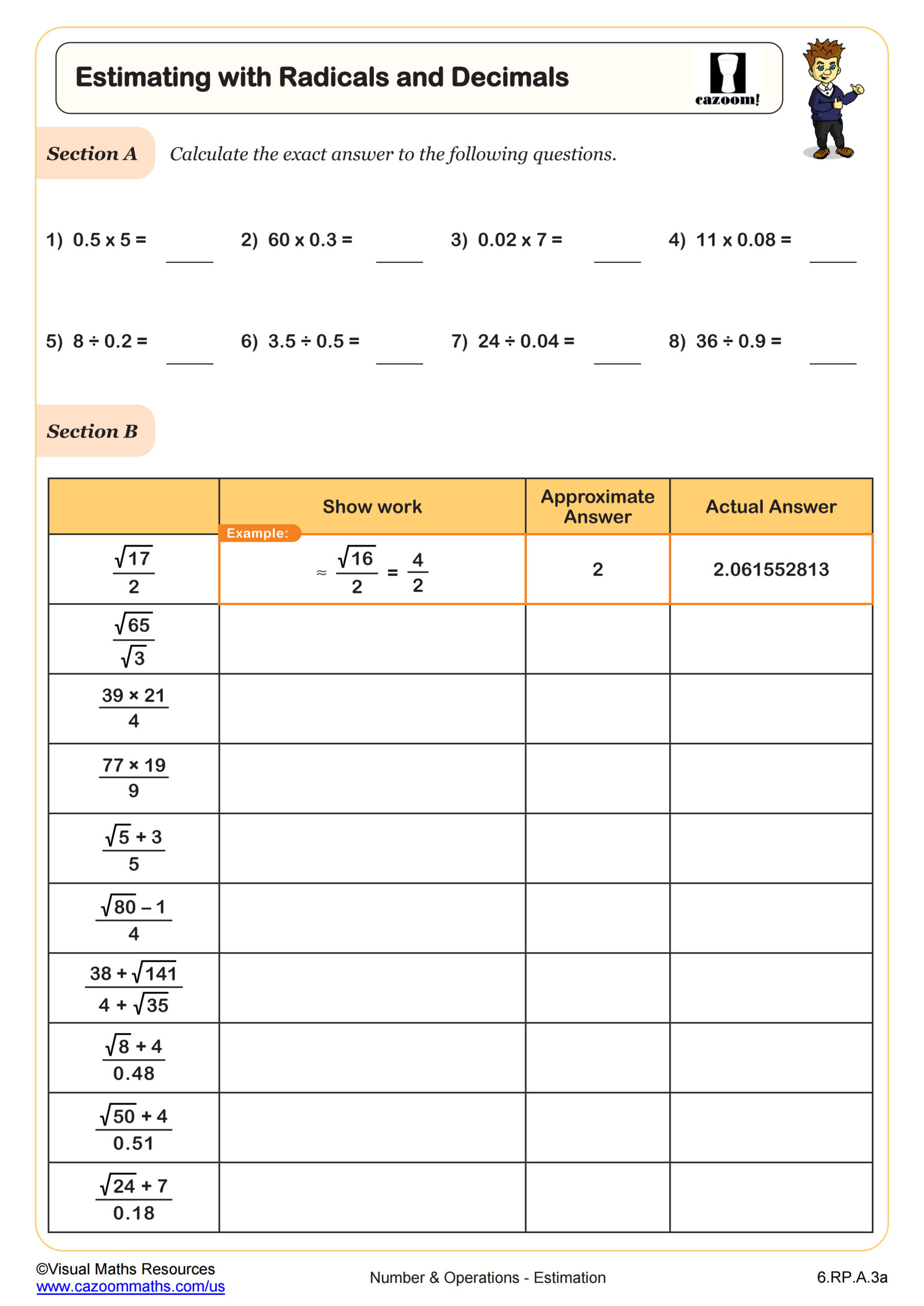
Evaluating Exponential Expressions (A)
Grades: 8th Grade
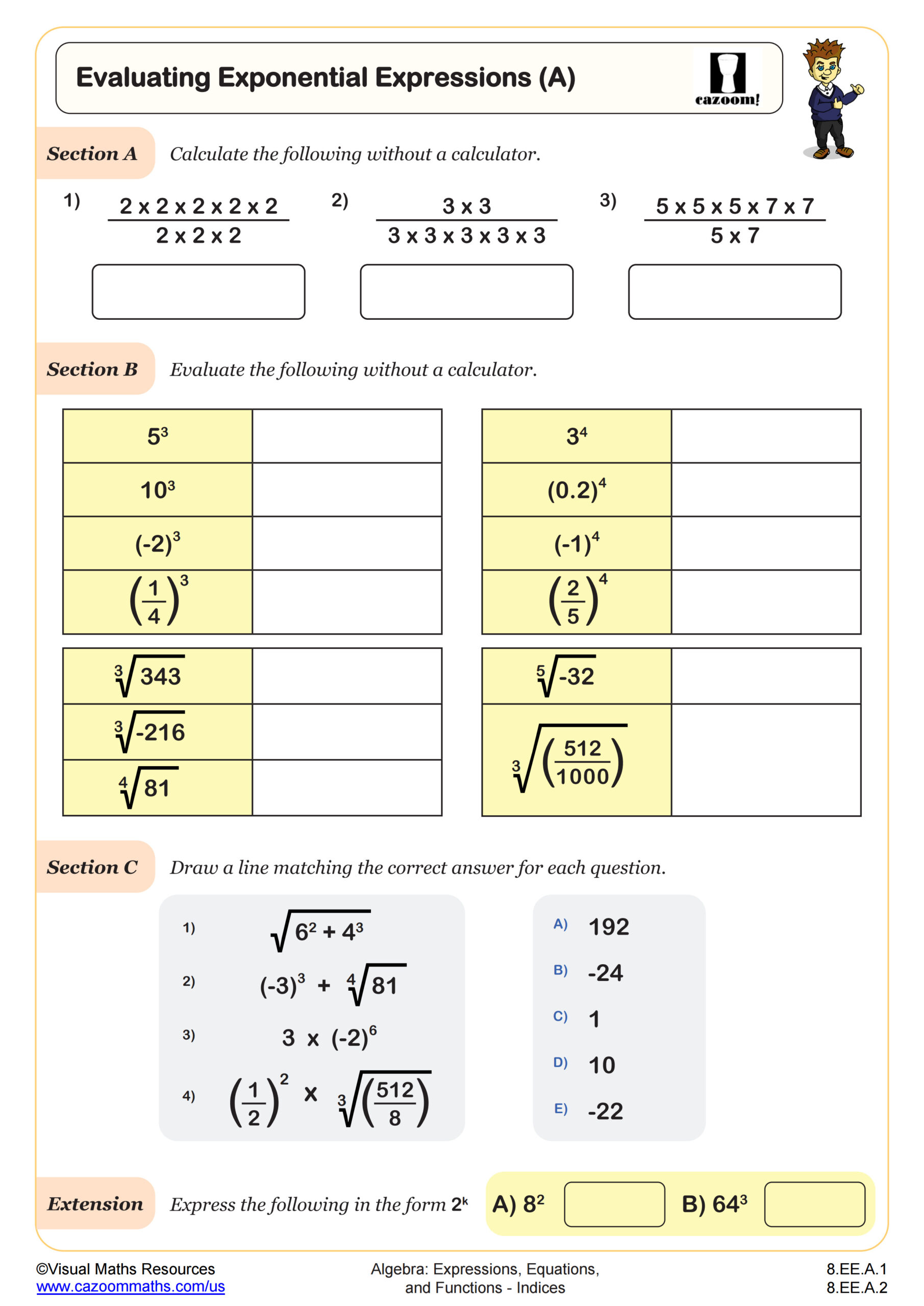
Evaluating Exponential Expressions (B)
Grades: 8th Grade
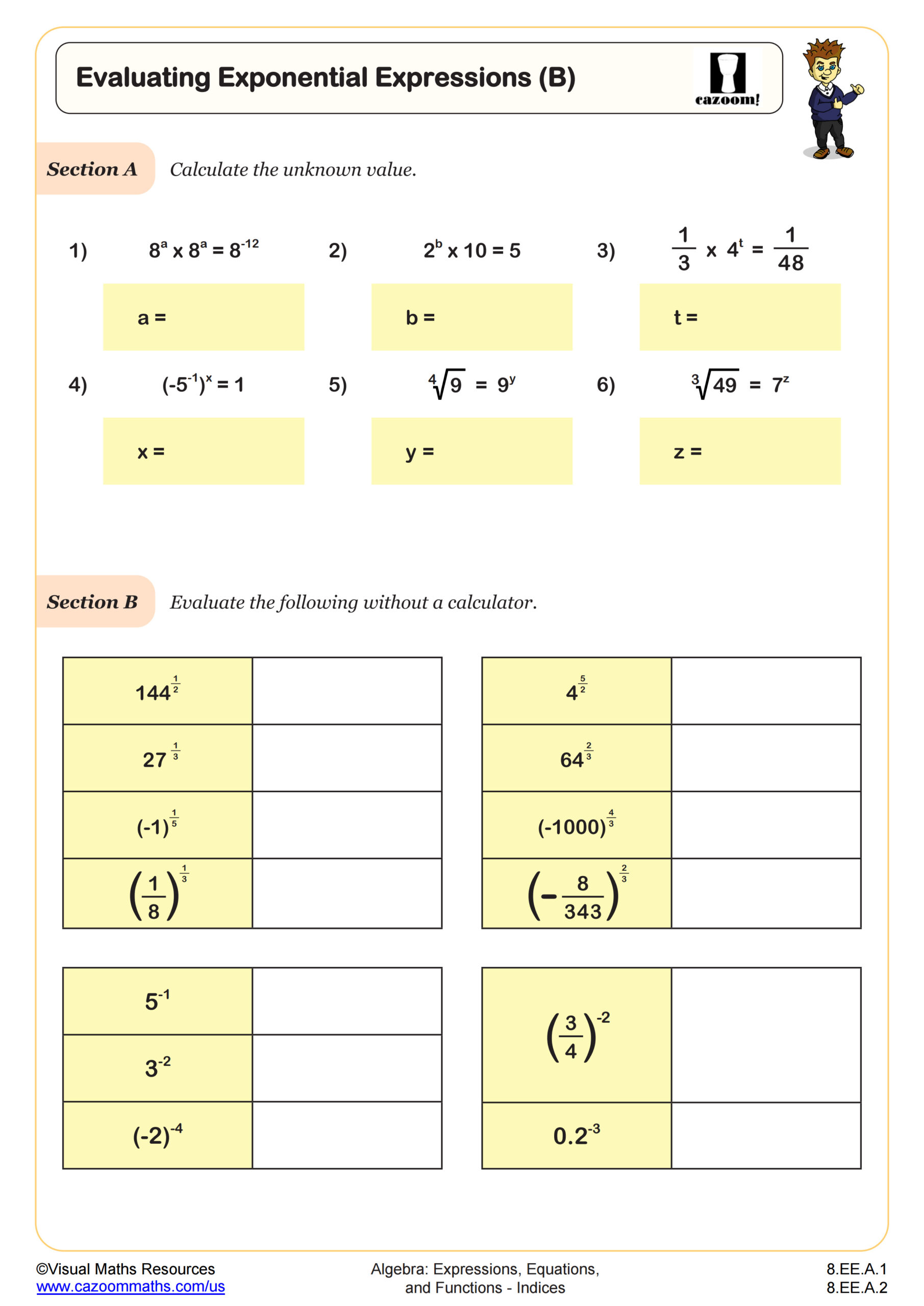
Finding Square and Nth Roots
Grades: 8th Grade, Algebra II
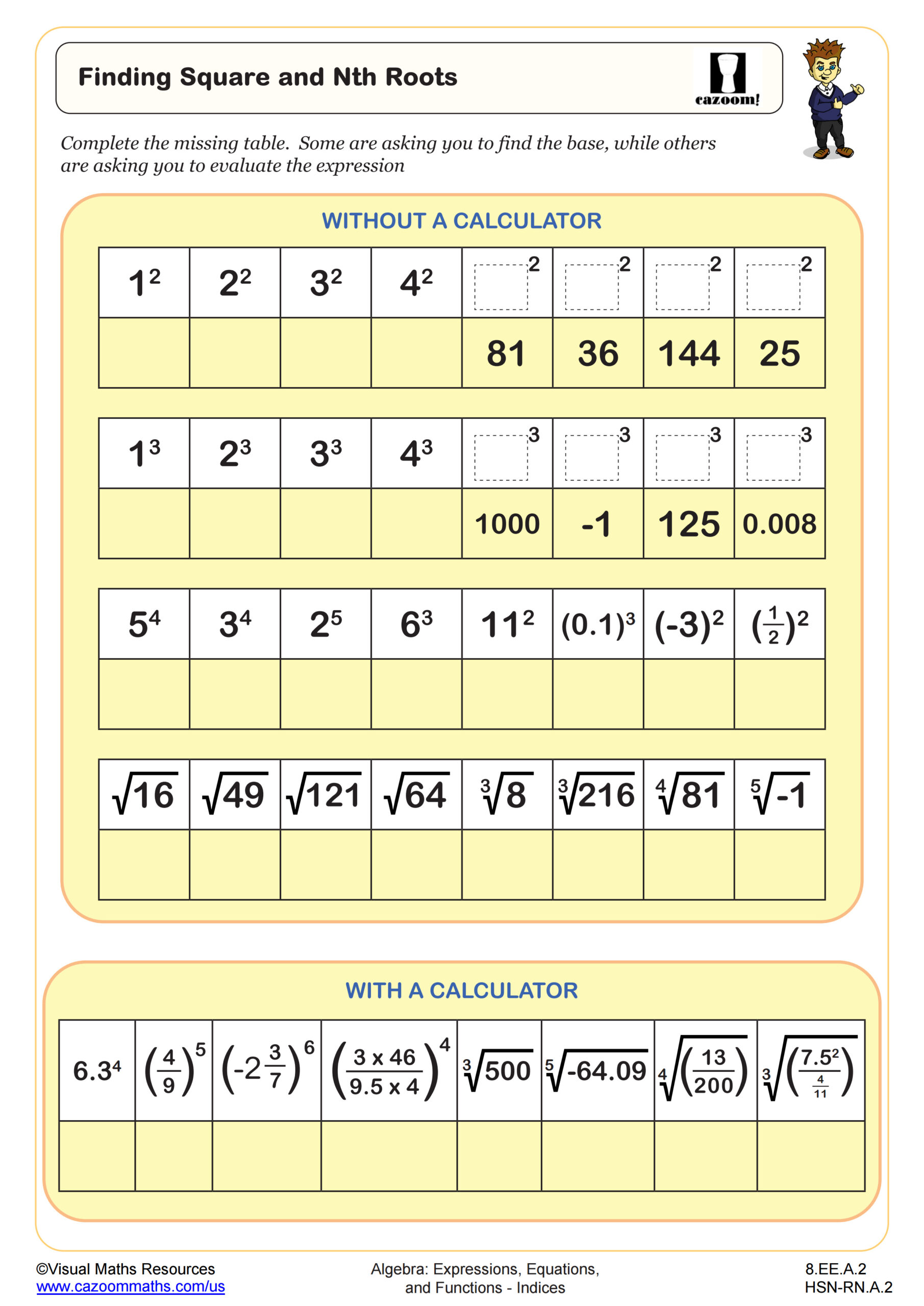
Fractional Indices
Grades: 8th Grade, IM 1
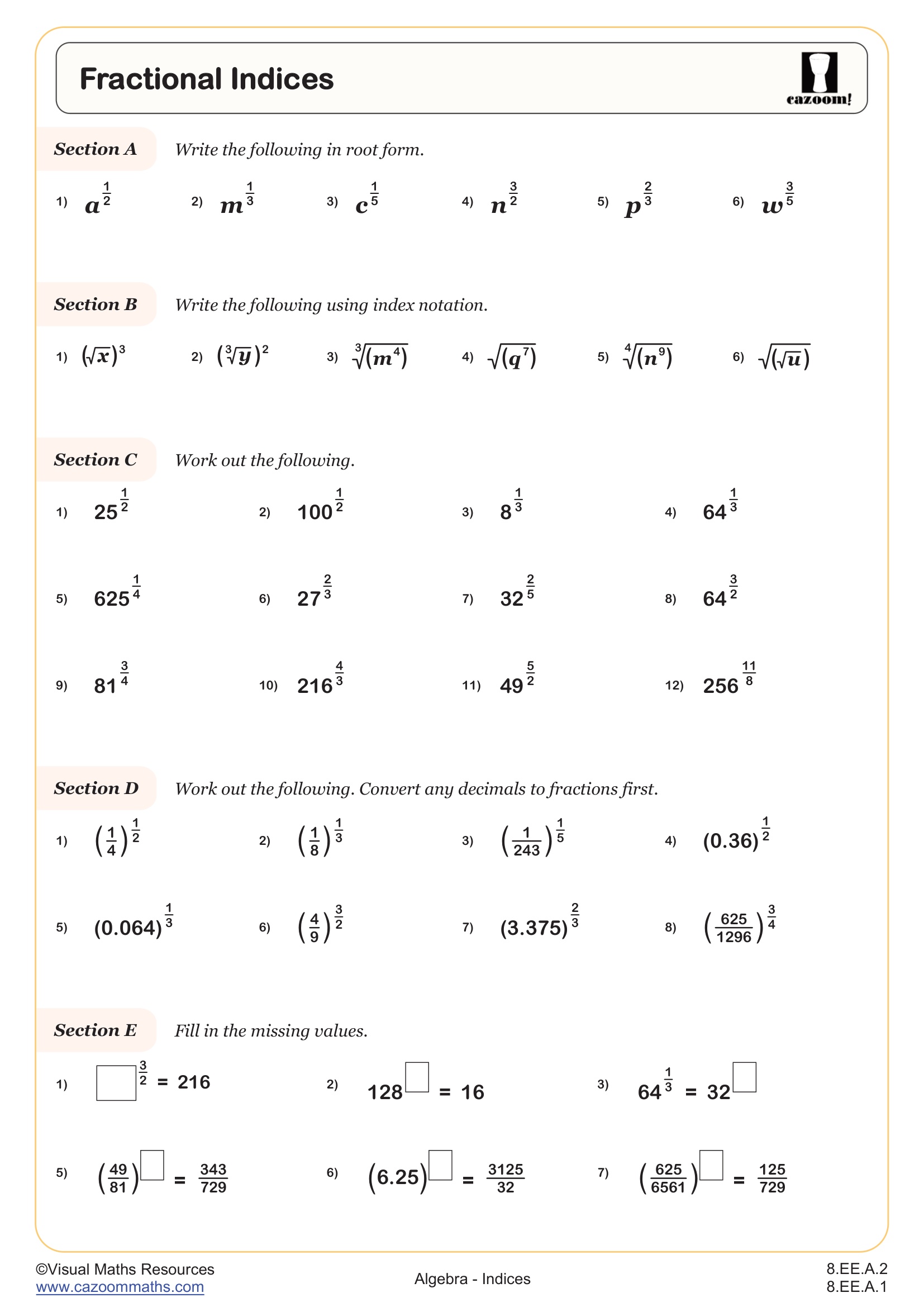
Indices - Changing the Base
Grades: 8th Grade, Algebra I, IM 1
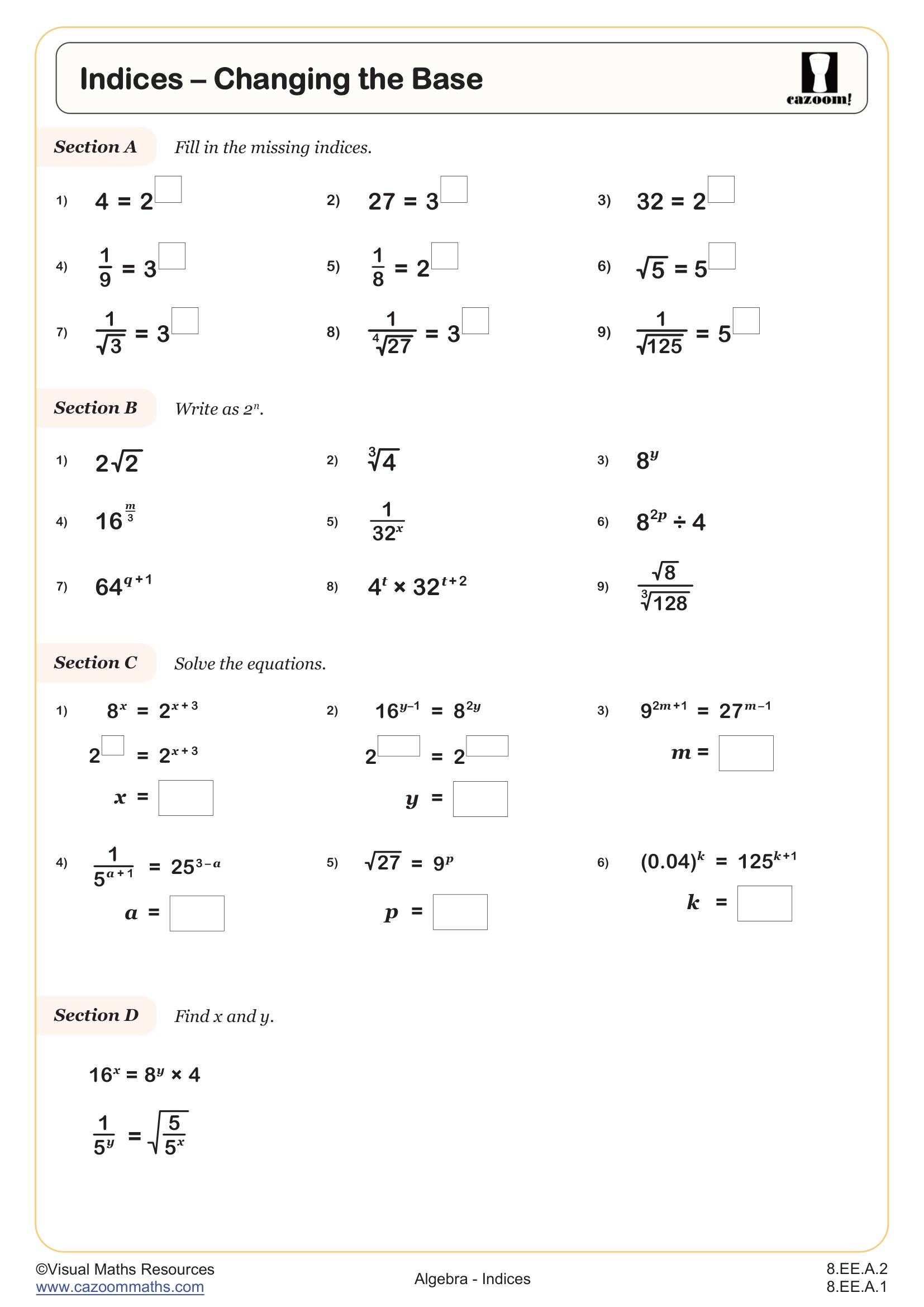
Multiplying and Dividing with Scientific Notation
Grades: 8th Grade
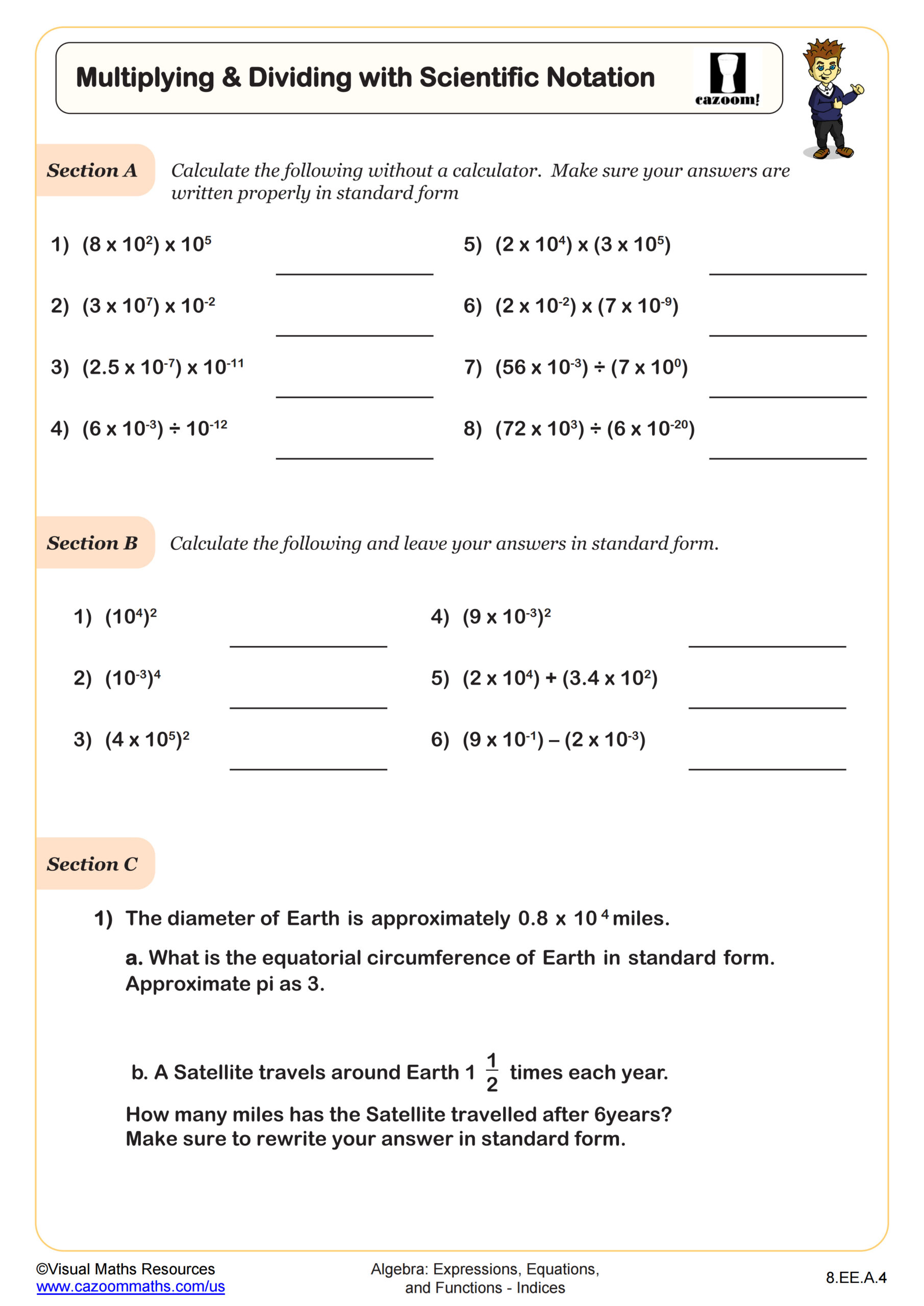
Negative Indices
Grades: 8th Grade, Algebra I, IM 1
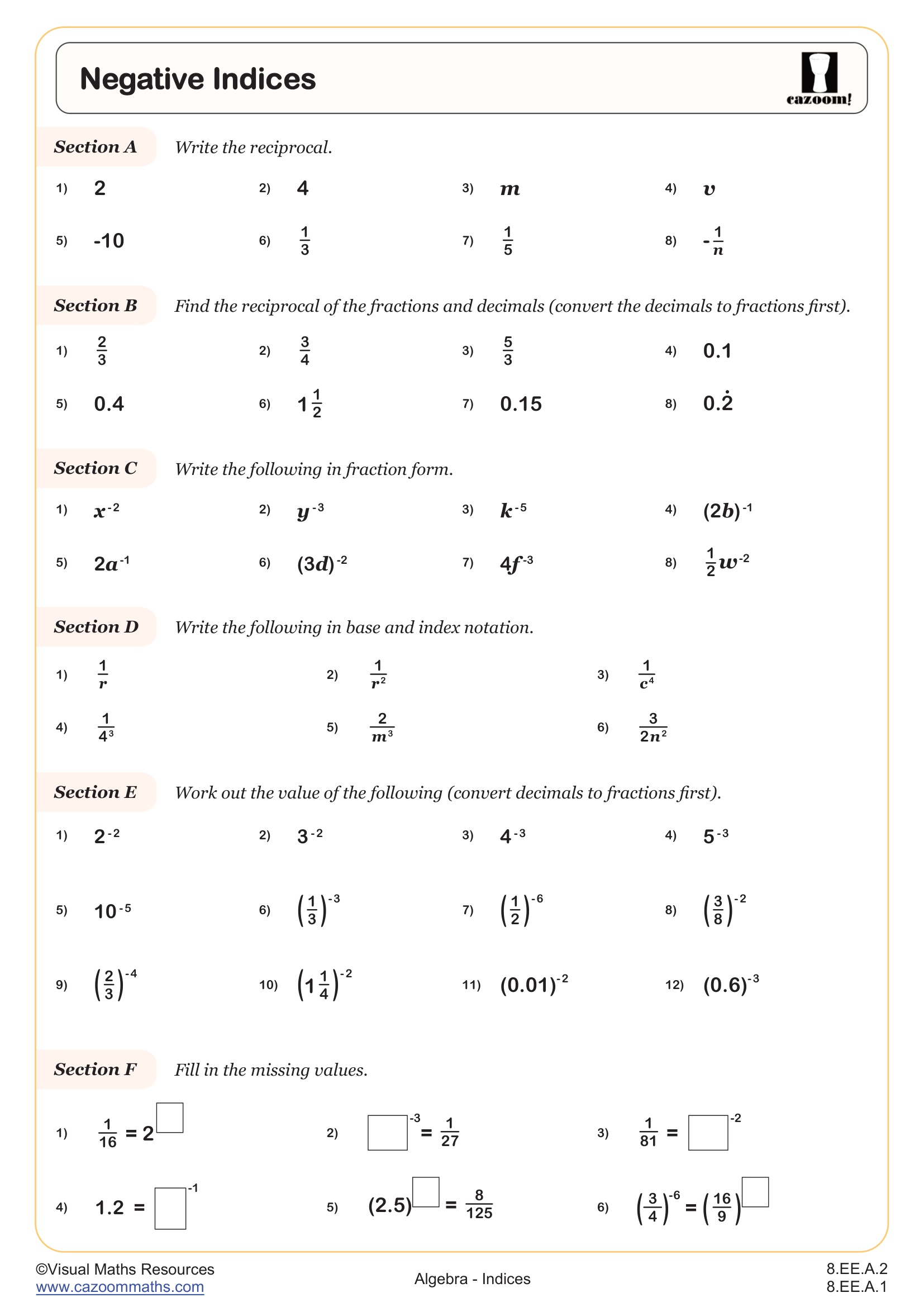
Operations with Scientific Notation (A)
Grades: 8th Grade
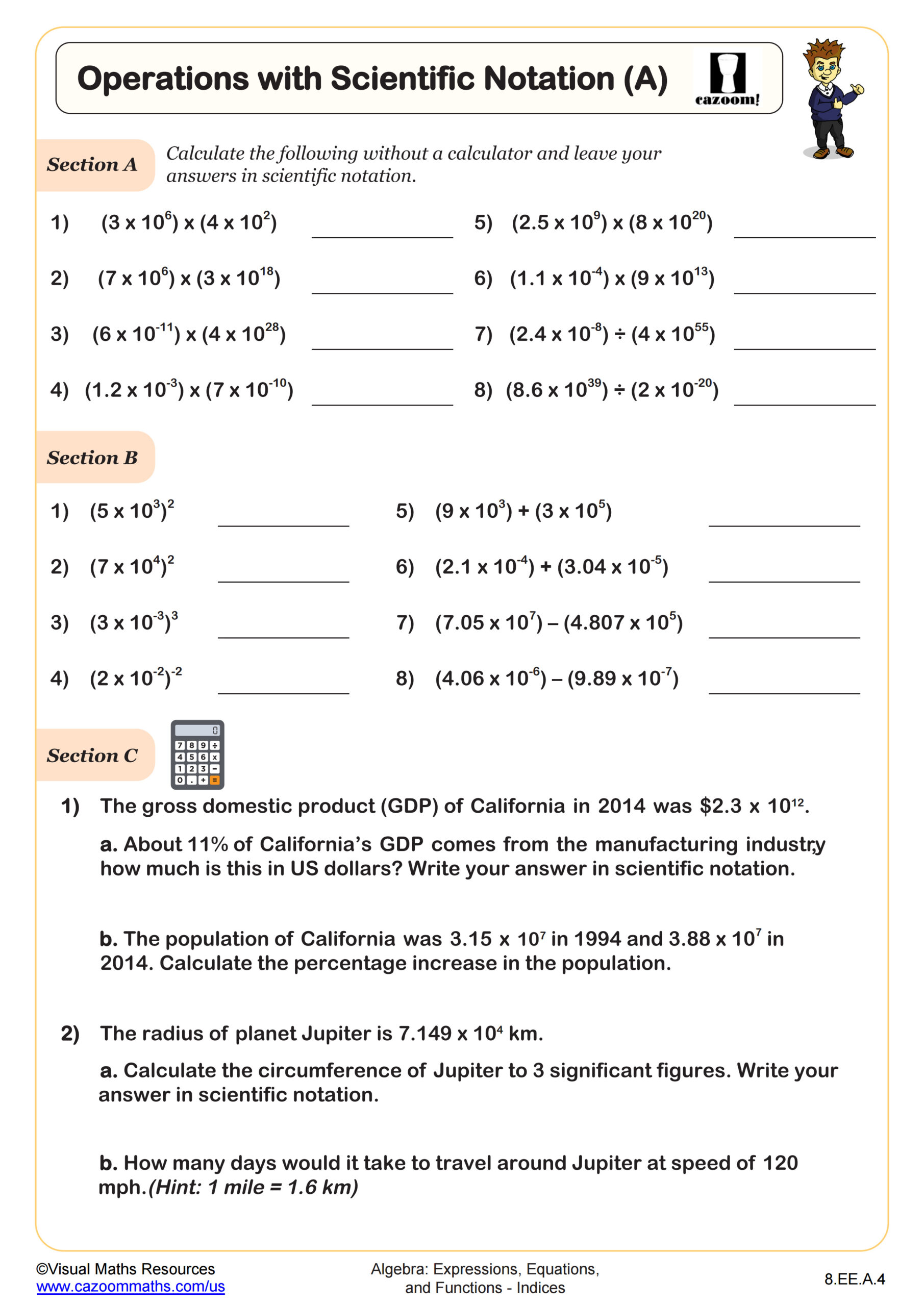
Operations with Scientific Notation (B)
Grades: 8th Grade
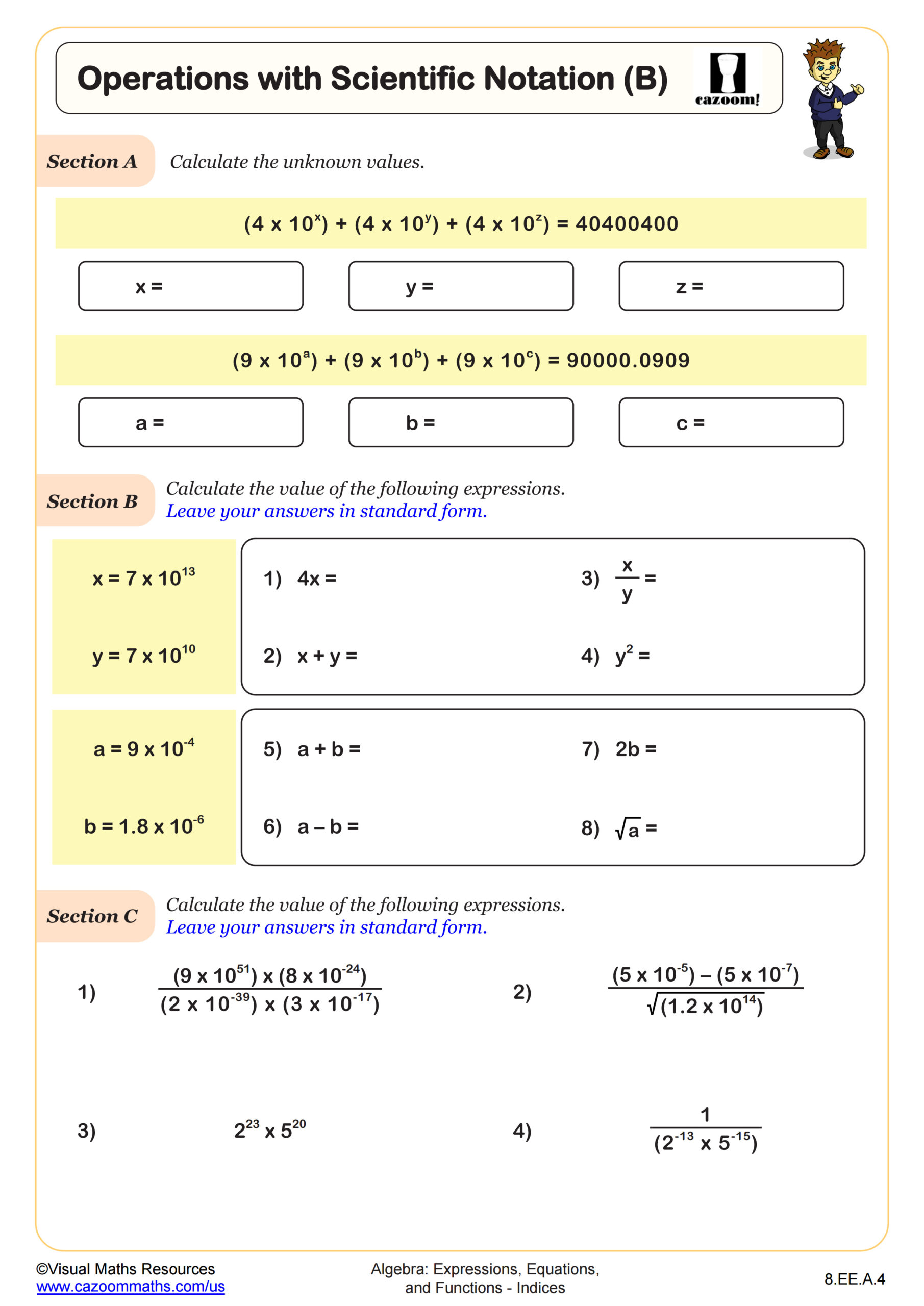
Operations with Scientific Notation Word Problems
Grades: 8th Grade
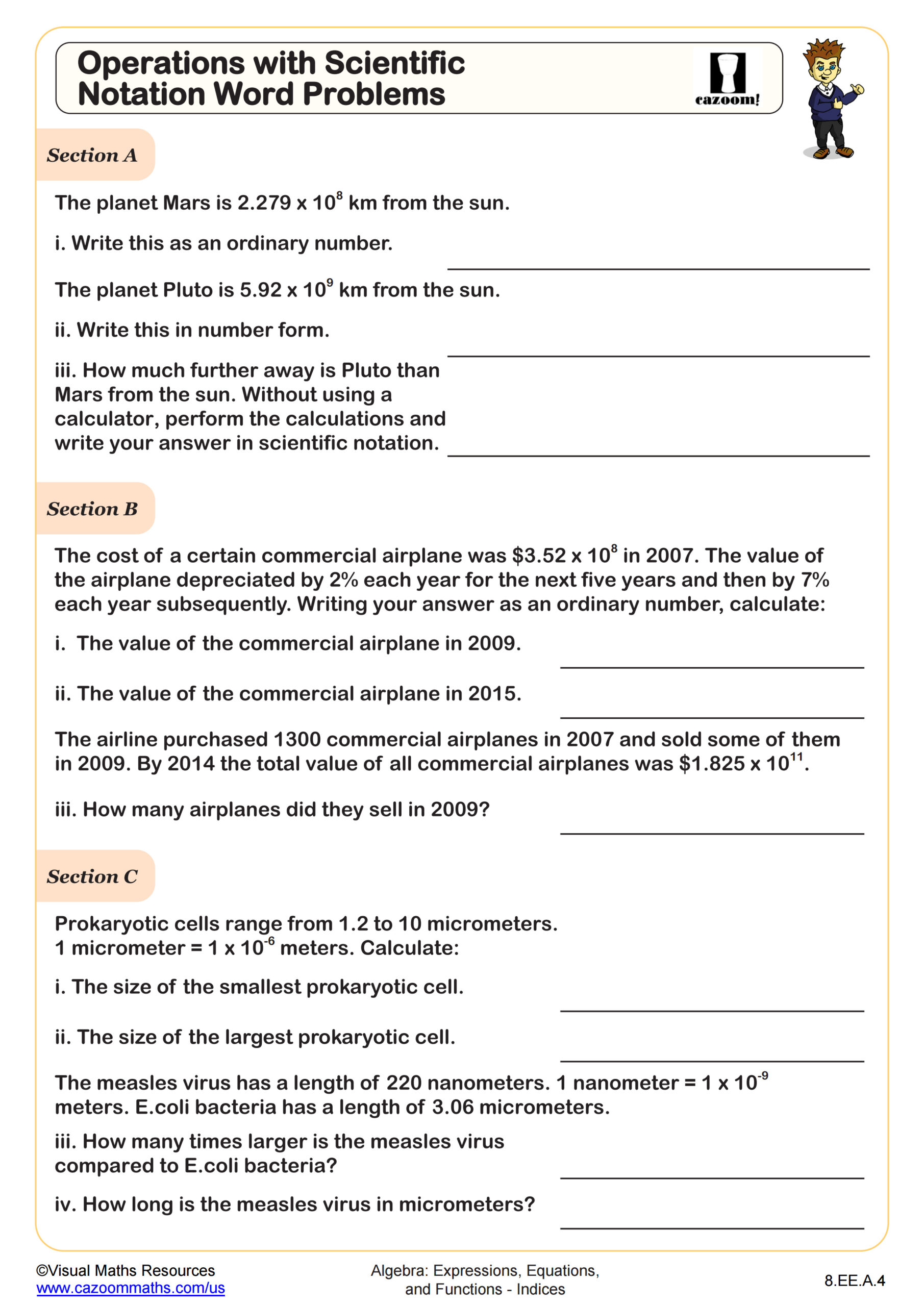
Representing Metric Units with Scientific Notation
Grades: 8th Grade
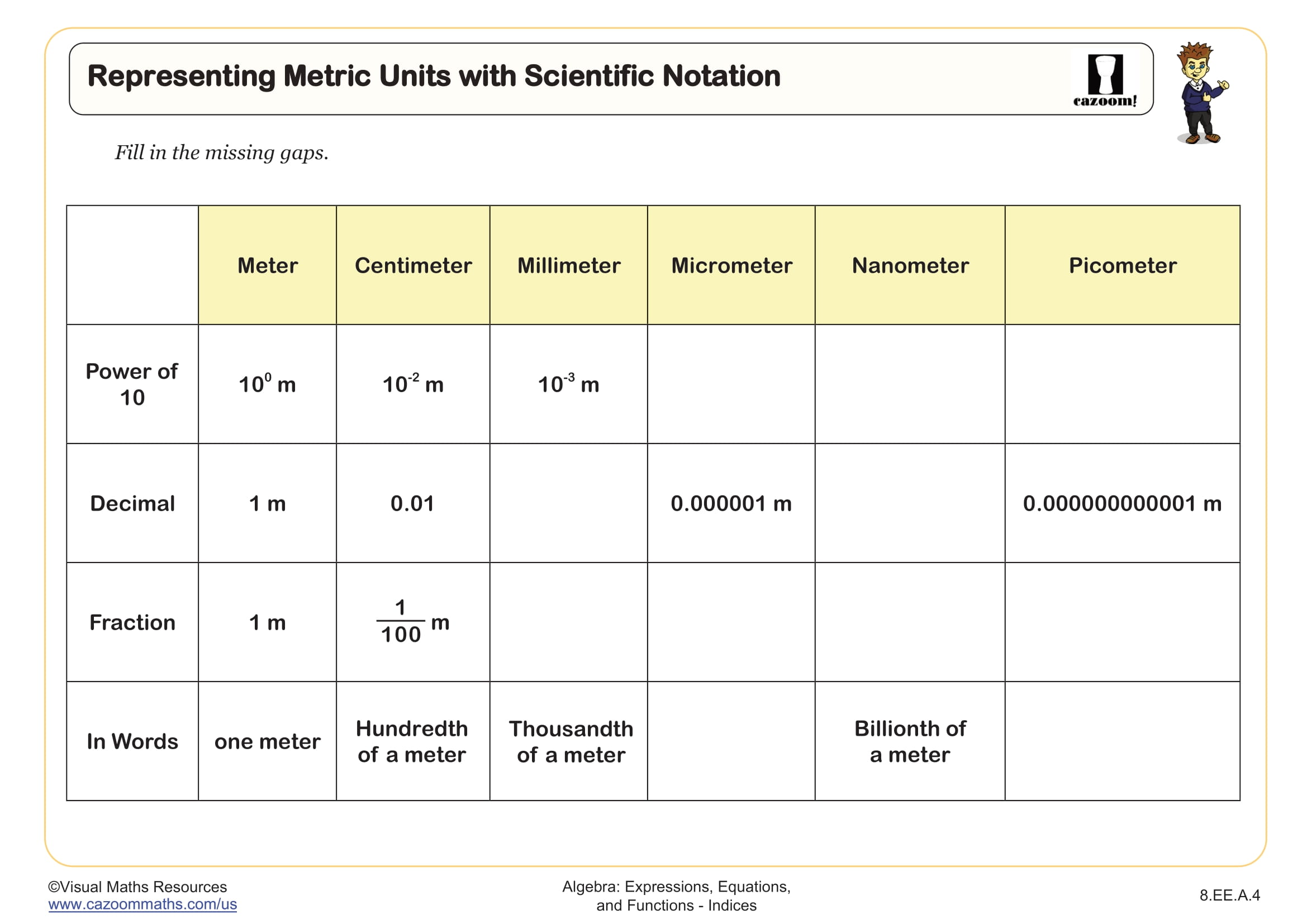
Scientific Notation Problem Solving
Grades: 8th Grade
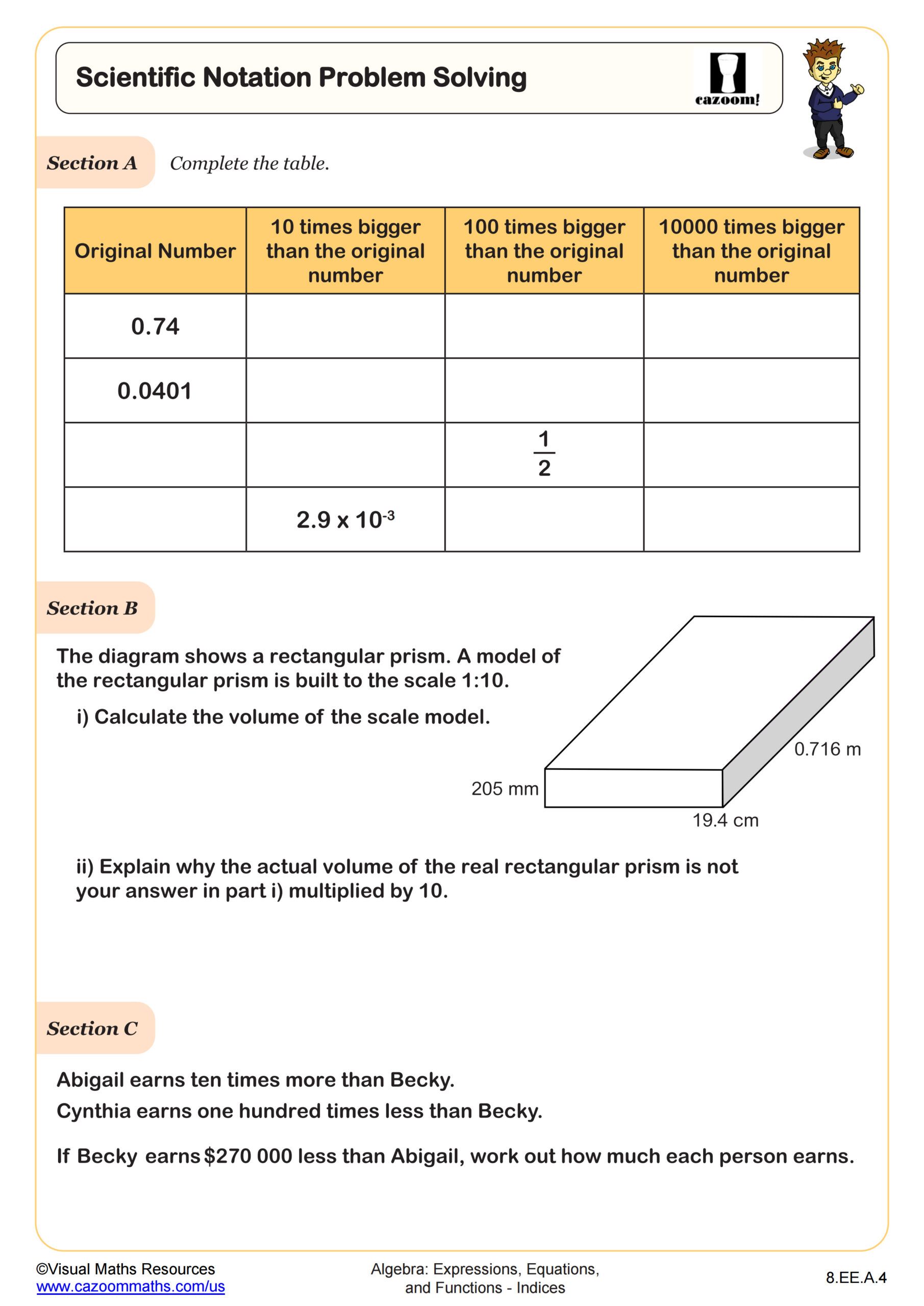
Scientific Notation: Rewriting in Standard Form
Grades: 8th Grade
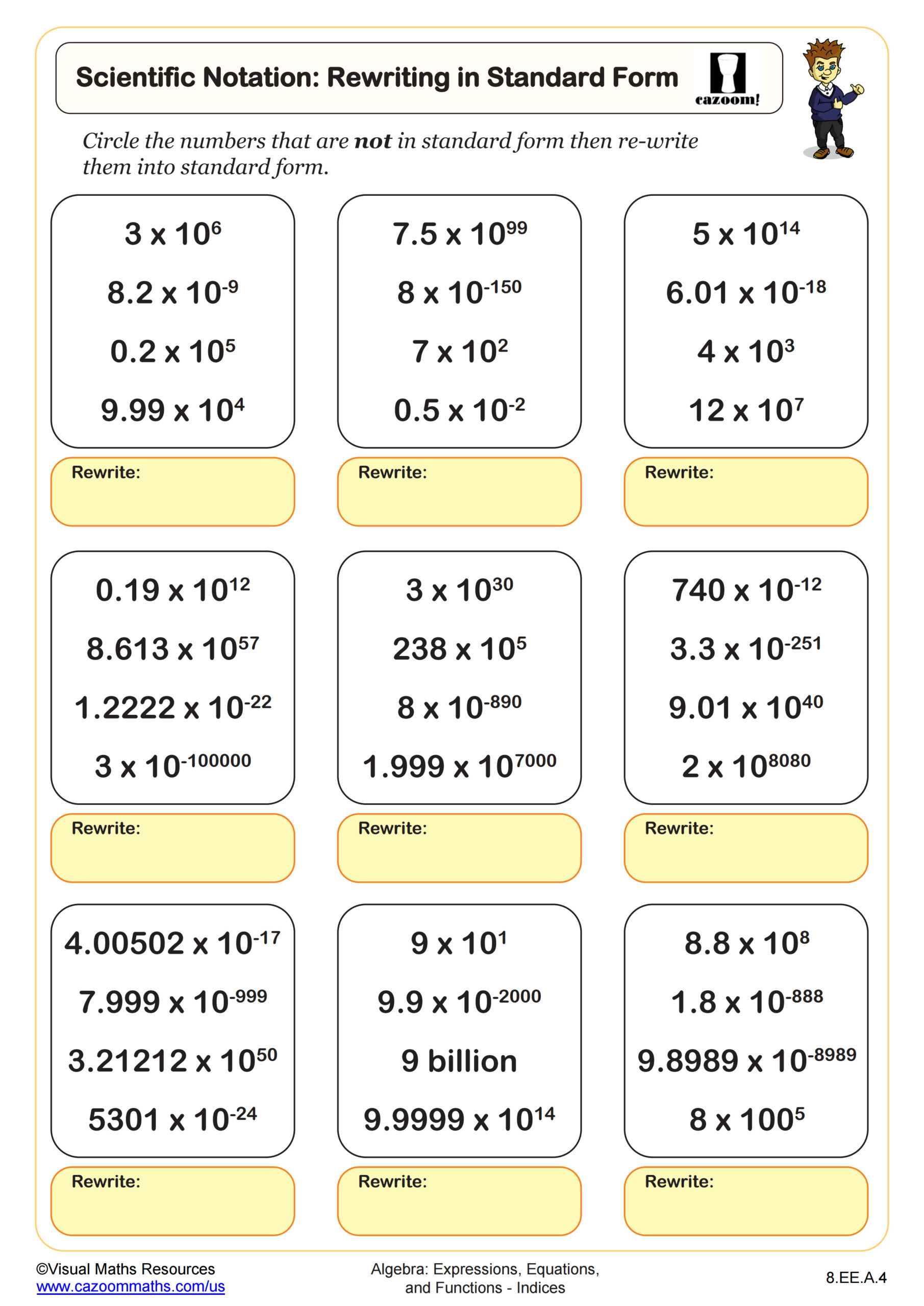
Scientific Notation: Standard Form Search
Grades: 8th Grade
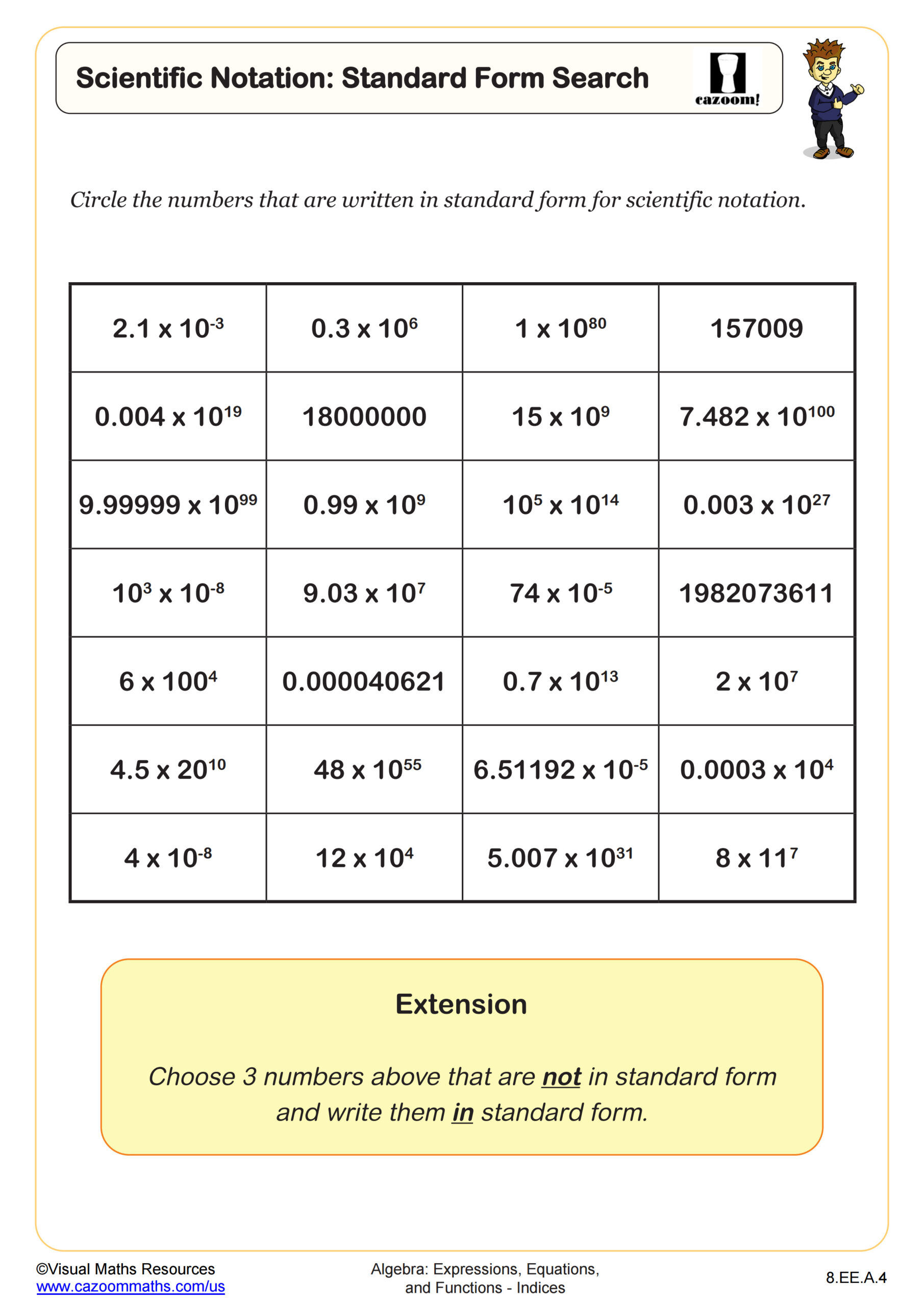
Solving Equations - Unknowns are Indices
Grades: 8th Grade, Algebra I, IM 1
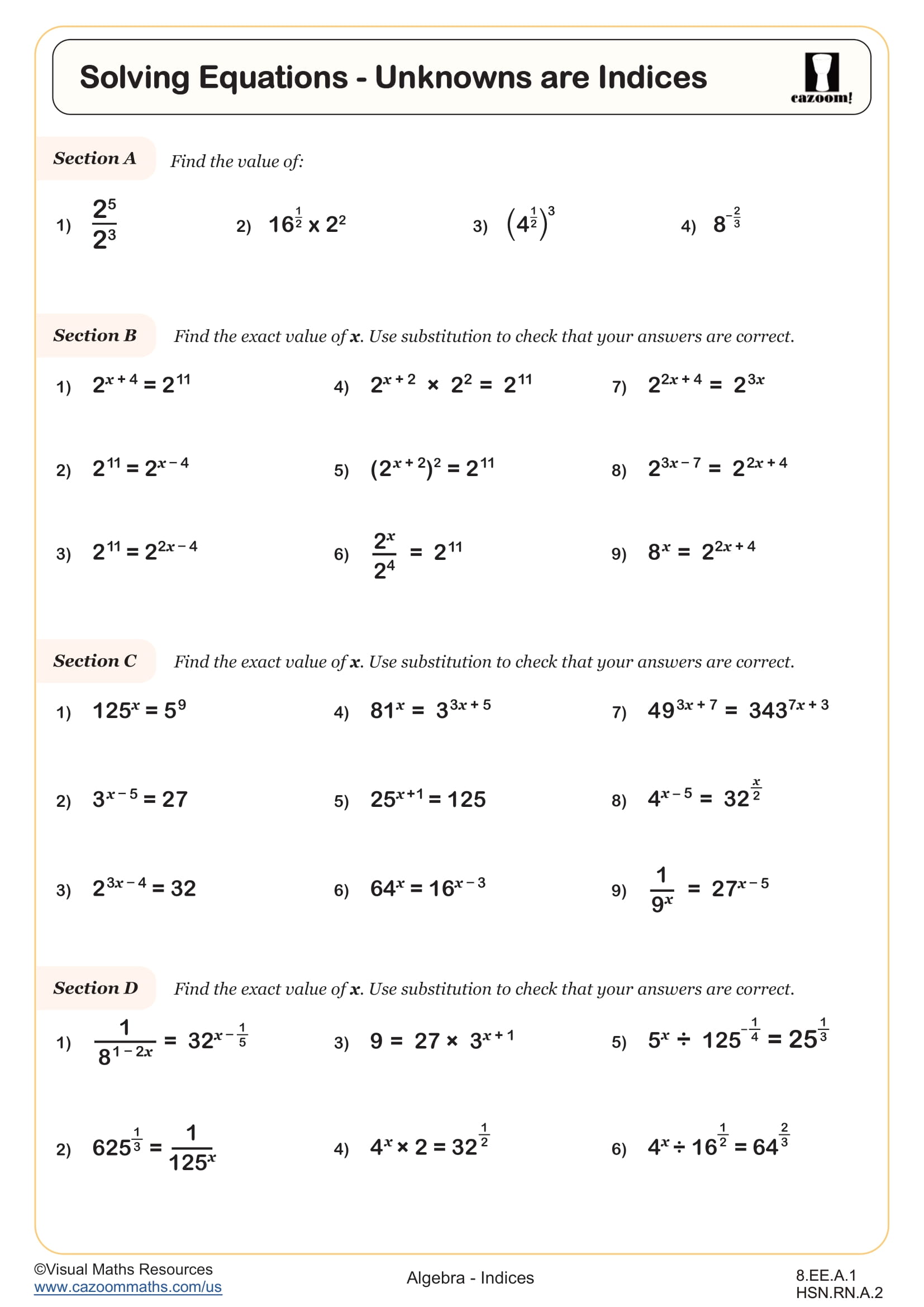
Synthesizing Exponents and Radicals
Grades: 8th Grade, Algebra I
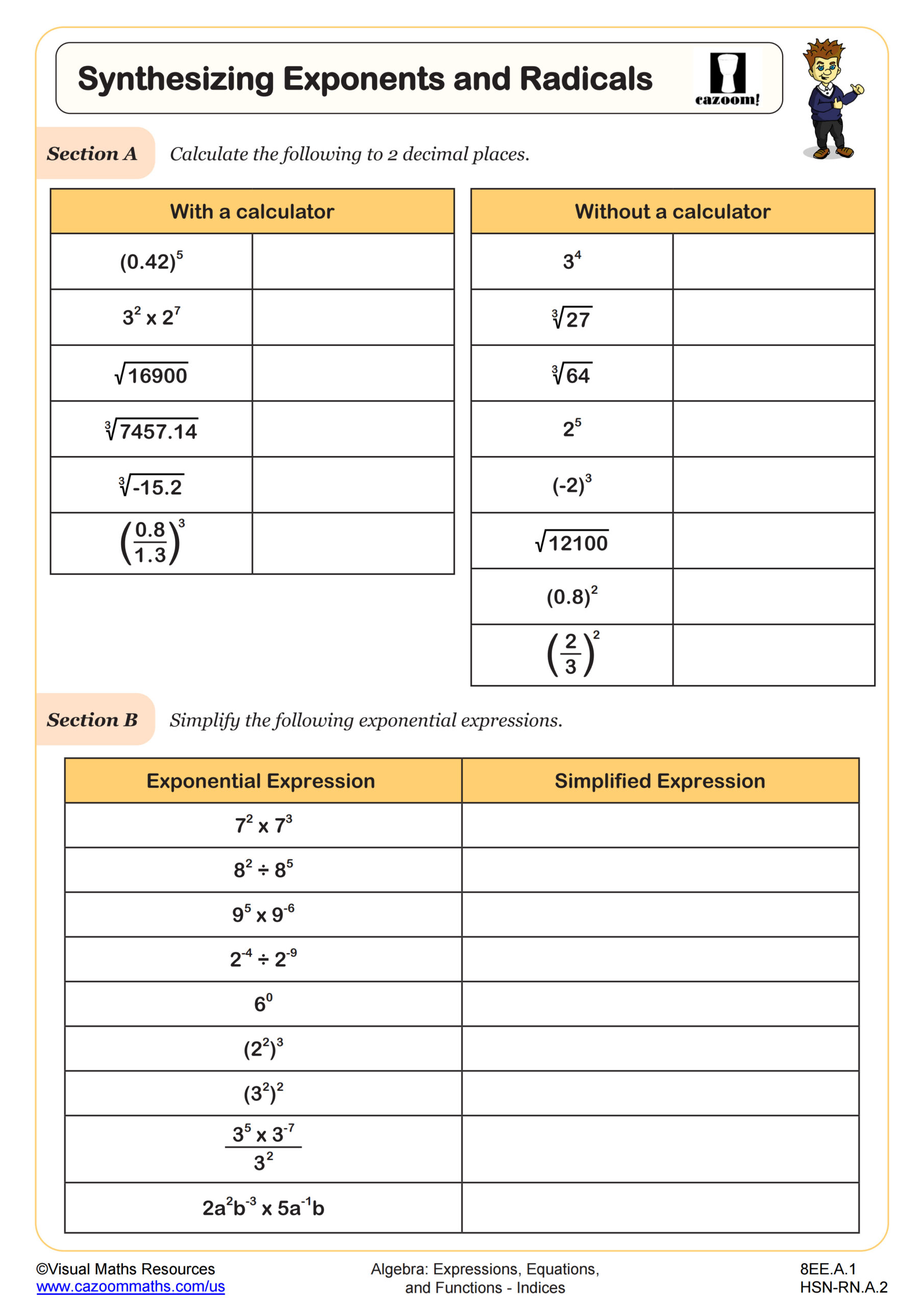
Writing Numbers in Scientific Notation (A)
Grades: 8th Grade
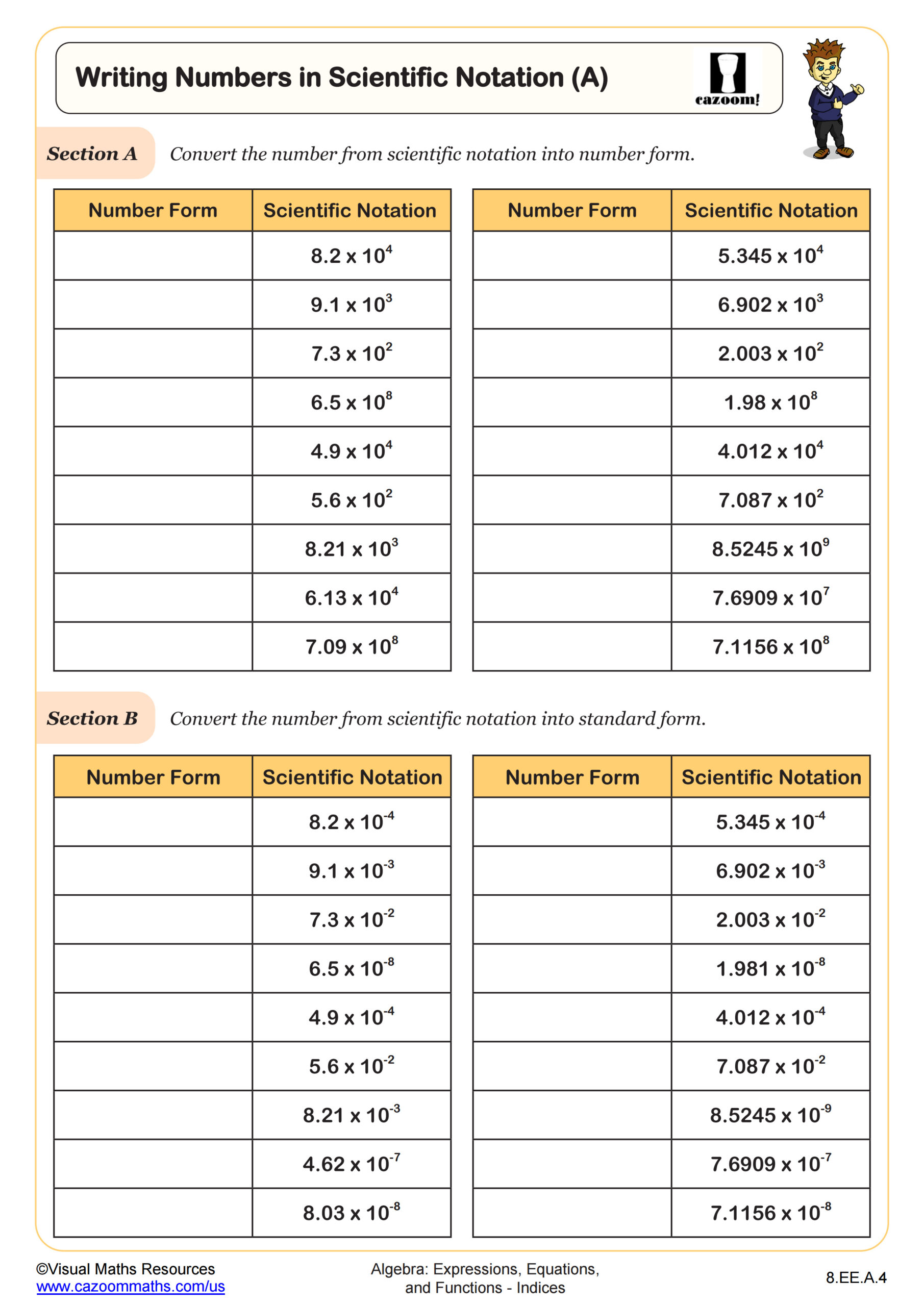
Writing Numbers in Scientific Notation (B)
Grades: 8th Grade
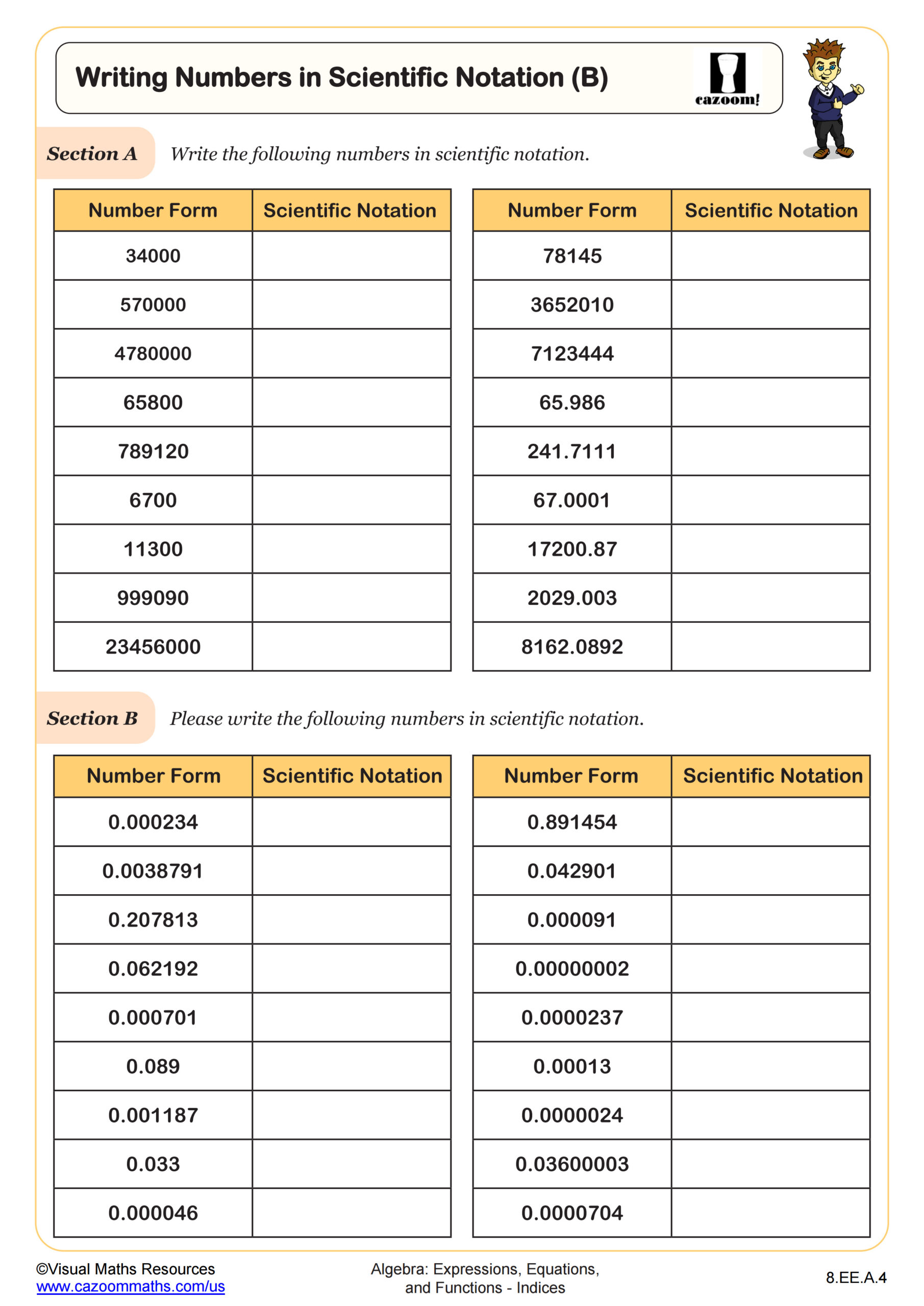
Evaluating Expressions with Radicals
Grades: Algebra I, IM 1
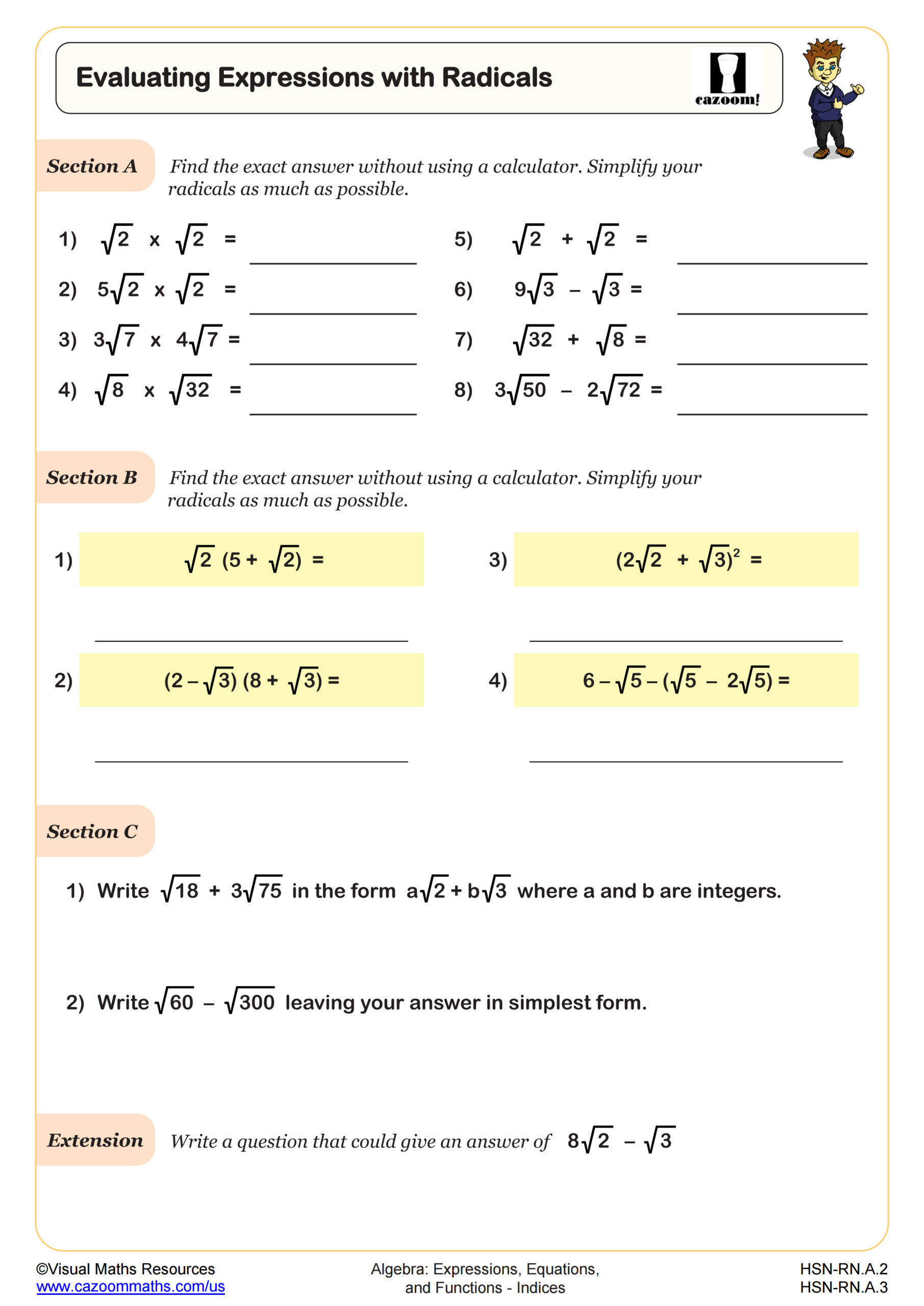
Simplifying Radicals (A)
Grades: Algebra I, IM 1
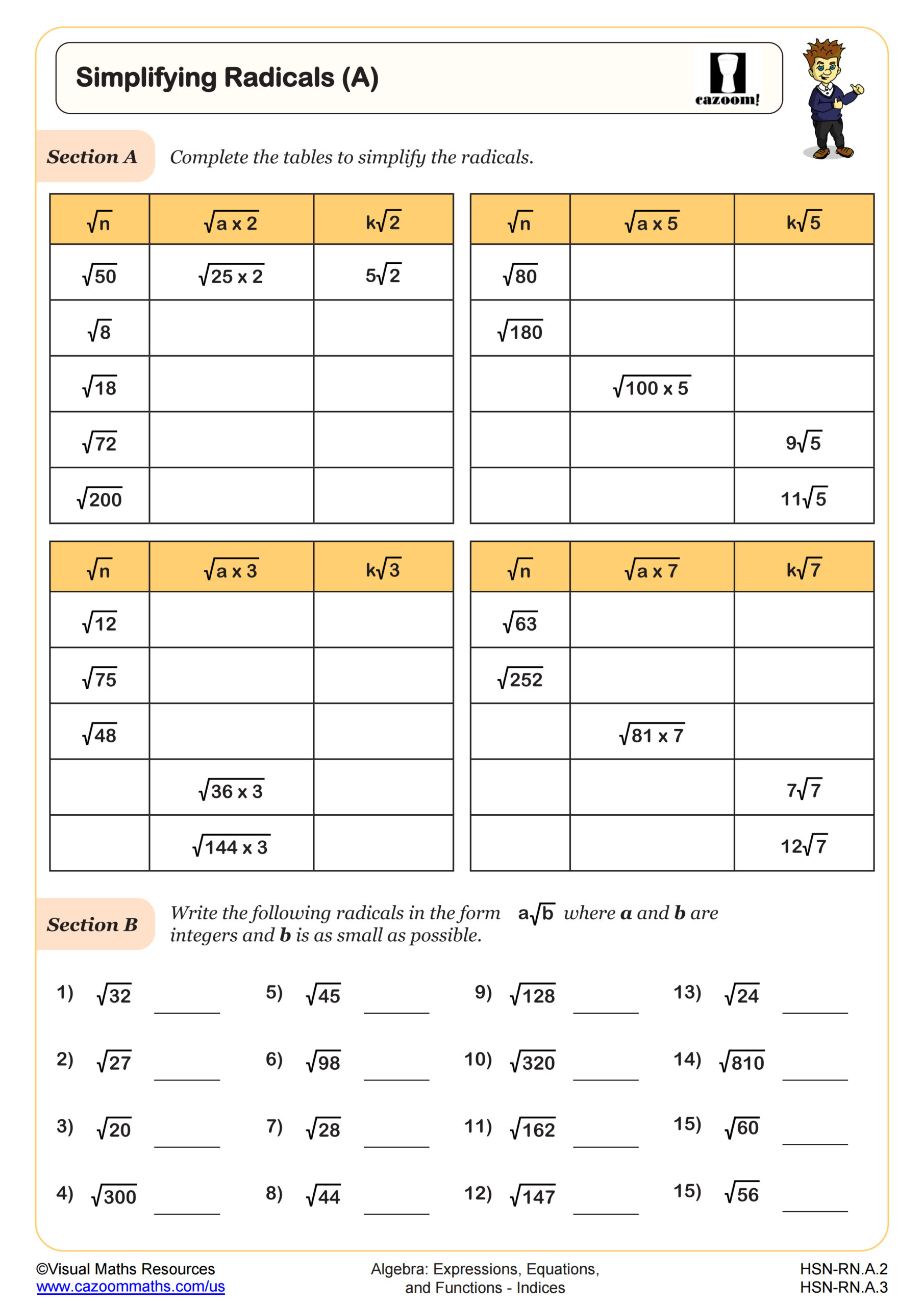
Simplifying Radicals (B)
Grades: Algebra I, IM 1
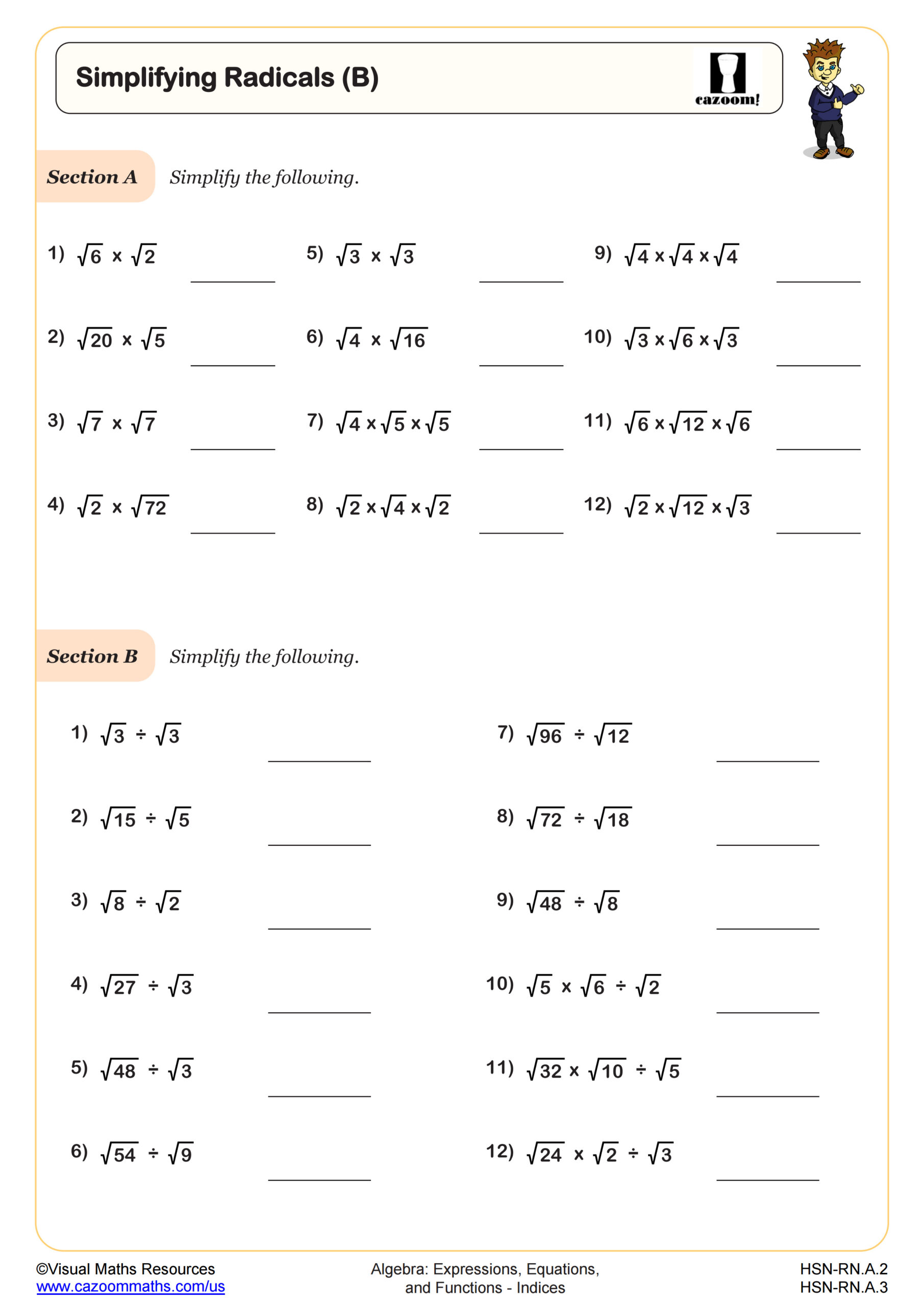
Simplifying Radicals (C)
Grades: Algebra I, IM 1
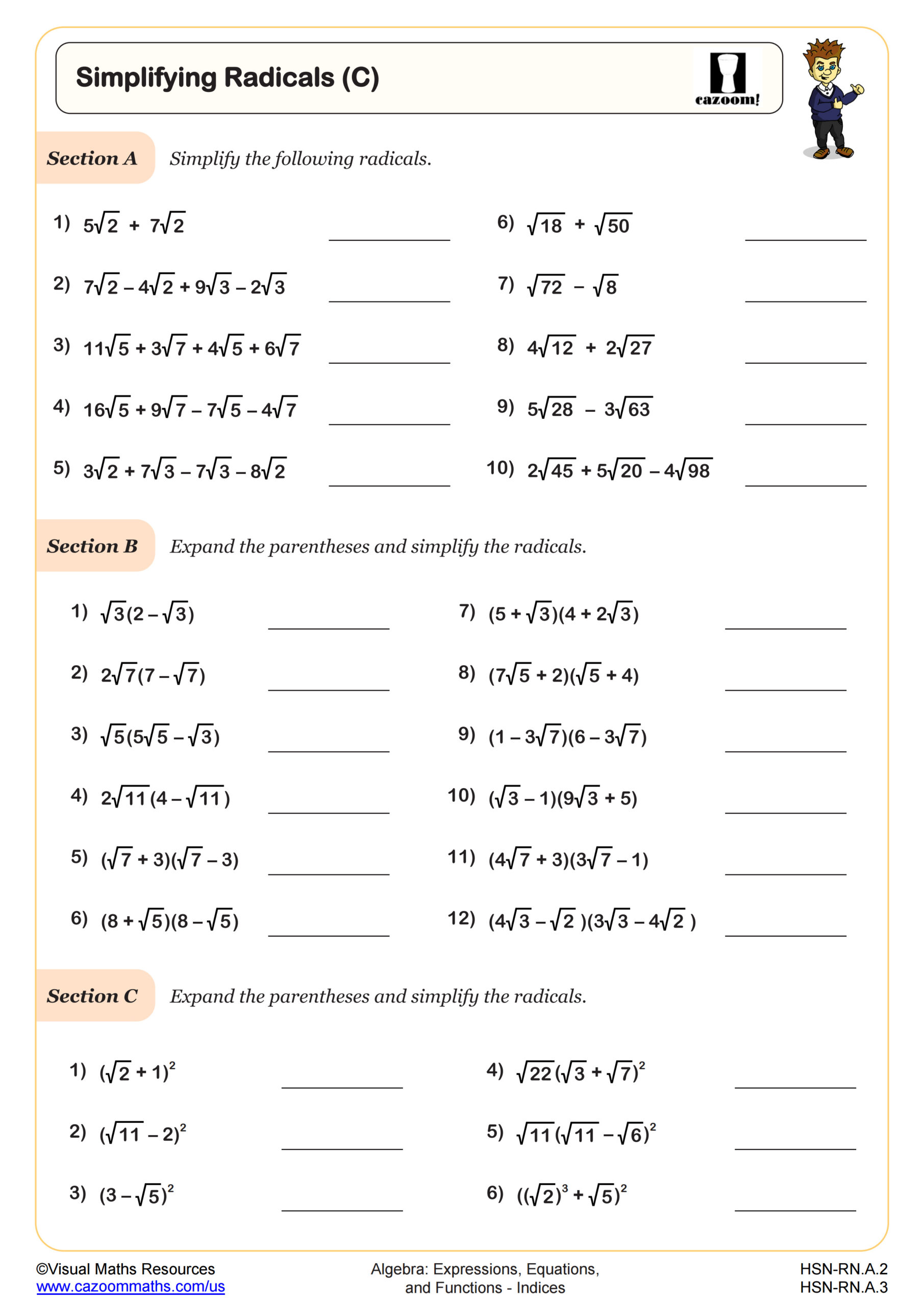
Simplifying Radicals by Rationalizing
Grades: Algebra I
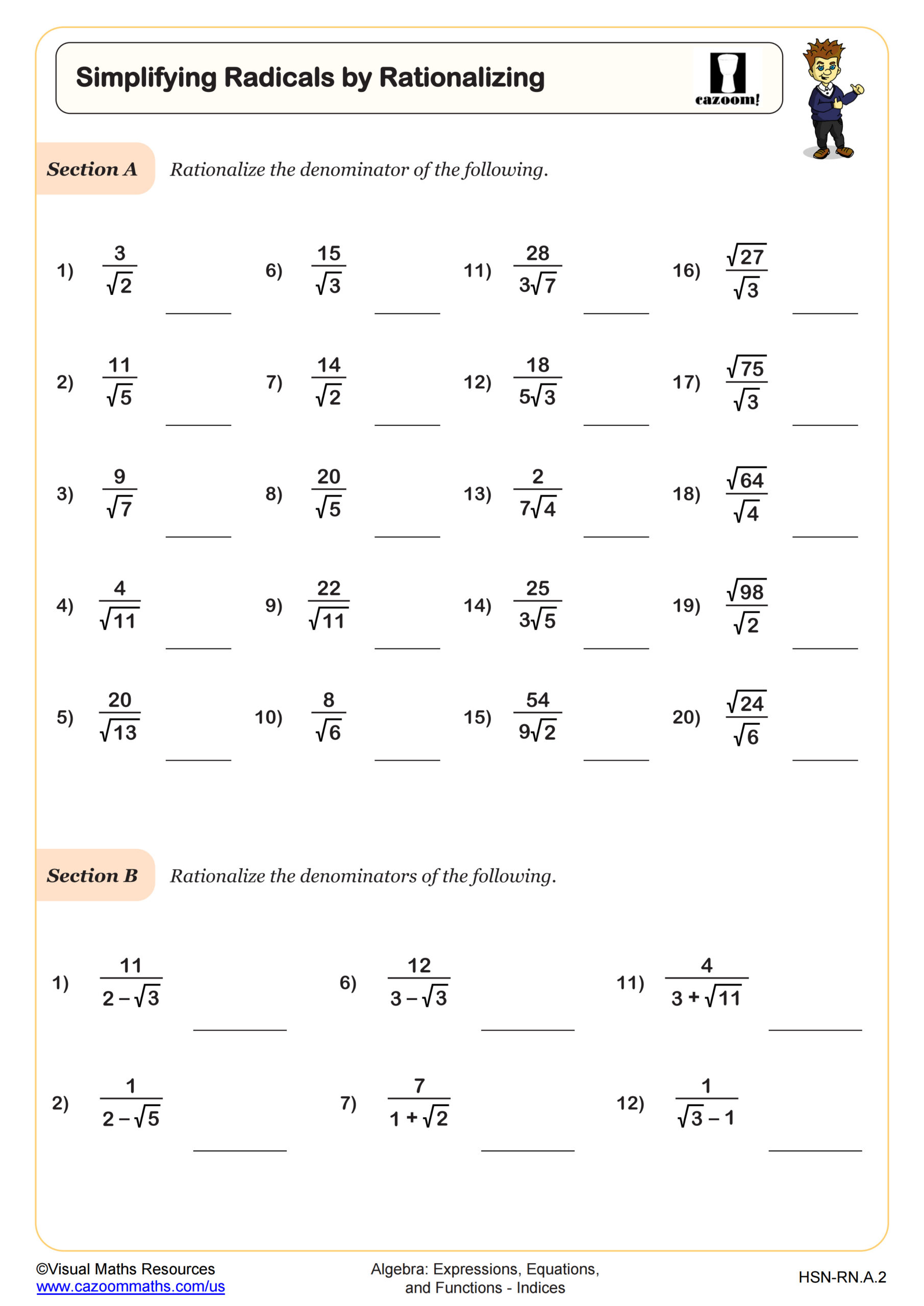
All worksheets are created by the team of experienced teachers at Cazoom Math.
Printable PDF Indices Worksheets with Answer Keys
Download our printable PDF Indices worksheet resources to give students in 8th grade, Algebra I, and Integrated Math, the push they need when learning different concepts of algebra equations. Our math experts have specifically curated these resources in a way that your children can master the different types of math worksheets using simple sums with clear and easy-to-understand instructions. Hence, all of our simple Indices worksheets with answers are great for building a sense of math and early problem-solving skills.
What Are Indices?
The basic concept of Indices, or exponents, shows how many times a number is multiplied by itself. In algebra, this concept is basically used to simplify repeated multiplication and work with powers of variables. Your middle and high school students learn rules like the product of powers, quotient of powers, power of a power, and zero or negative indices. These math rules will help simplify expressions and solve complex equations more efficiently.
Benefits of Using Our Indices Worksheets
Practicing our indices math worksheet strengthens algebraic reasoning and supports higher-level math skills. Our expert-made worksheets help students solve problems accurately and understand the structure of expressions involving powers. With easy, step-by-step instructions and clear formatting, your young learners will be able to work independently or in small groups. The included separate answer keys make checking work fast and simple, which will support both teachers, parents, and students in tracking progress.
Why Is It Important to Learn Indices?
Indices play a key role in algebra, science, and real-world applications. They simplify calculations, represent large or small numbers, and form the basis for understanding exponential growth, scientific notation, and compound interest. Learning how to use and manipulate indices helps students think logically, solve problems efficiently, and prepare for advanced courses in math and science.
Real-Life Uses of Indices
Exponents are used in everyday life more often than you may think. Students may encounter them in population growth models, financial calculations, physics formulas, and computer algorithms. Knowing how to work with indices helps them solve real-world problems more effectively and understand concepts that go beyond the classroom.
What Should Students Know Before Starting Indices?
Before working with indices, students need to master some basic learning. For Example–
• They must be confident in multiplication and division
• Your students should understand the concept of repeated multiplication
• Your students should be familiar with algebraic variables and expressions
• They should know how to simplify and evaluate simple equations
These basic math skills provide a strong foundation for understanding exponent rules. Our worksheets build on this knowledge and introduce each concept step by step.